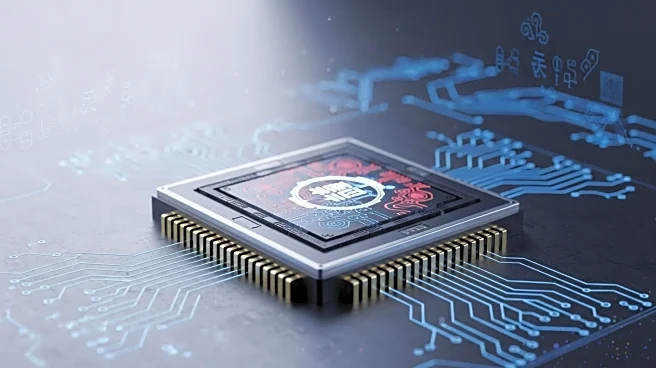What is the story about?
What's Happening?
Chinese technology companies, including AI developer iFLYTEK, have successfully developed domestic alternatives to Nvidia's AI chips, overcoming U.S. export restrictions. These restrictions were initially imposed during President Trump's administration due to national security concerns. Despite the challenges, Chinese firms have advanced their chipmaking capabilities, posing a significant challenge to U.S. efforts to contain China's technological progress. The development of these alternatives highlights China's growing self-reliance in technology, particularly in AI, electric vehicles, and renewable energy sectors. The strategic implications of this shift are profound, as it affects global business competition and the balance of technological power between the U.S. and China.
Why It's Important?
The ability of Chinese firms to develop alternatives to U.S. technology underscores a shift in global technological dynamics. This development could lead to increased competition in the AI and semiconductor industries, potentially reducing U.S. influence in these sectors. For U.S. companies, this means facing stronger competition from Chinese firms that are no longer reliant on American technology. Additionally, the strategic balance between the U.S. and China could be affected, as technological advancements are crucial for national security and economic dominance. The situation also highlights the limitations of export restrictions as a tool for controlling technological proliferation.
What's Next?
As Chinese companies continue to innovate and develop their own technologies, the U.S. may need to reassess its export control strategies. There could be increased diplomatic and economic tensions as both countries vie for technological supremacy. U.S. policymakers might consider alternative strategies to maintain competitiveness, such as investing in domestic innovation and strengthening alliances with other tech-leading nations. Meanwhile, Chinese firms are likely to expand their market presence globally, leveraging their new technologies to enter markets previously dominated by U.S. companies.
Beyond the Headlines
The development of domestic alternatives to Nvidia chips by Chinese firms raises ethical and legal questions regarding intellectual property and technology transfer. It also highlights the cultural shift towards self-reliance in China, which could influence global perceptions of Chinese technology. Long-term, this trend may lead to a more fragmented global tech landscape, with distinct technological ecosystems emerging in different regions.















